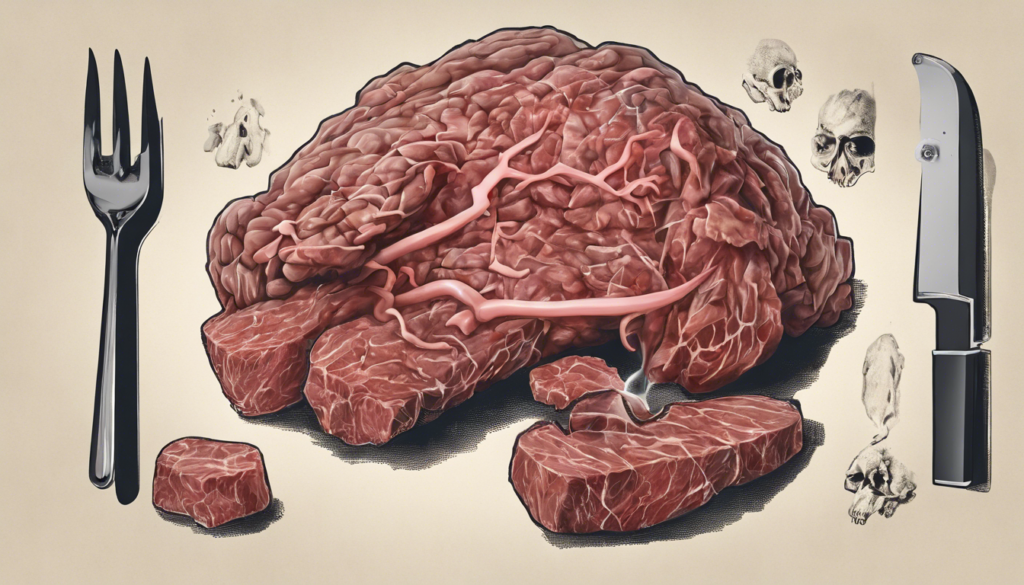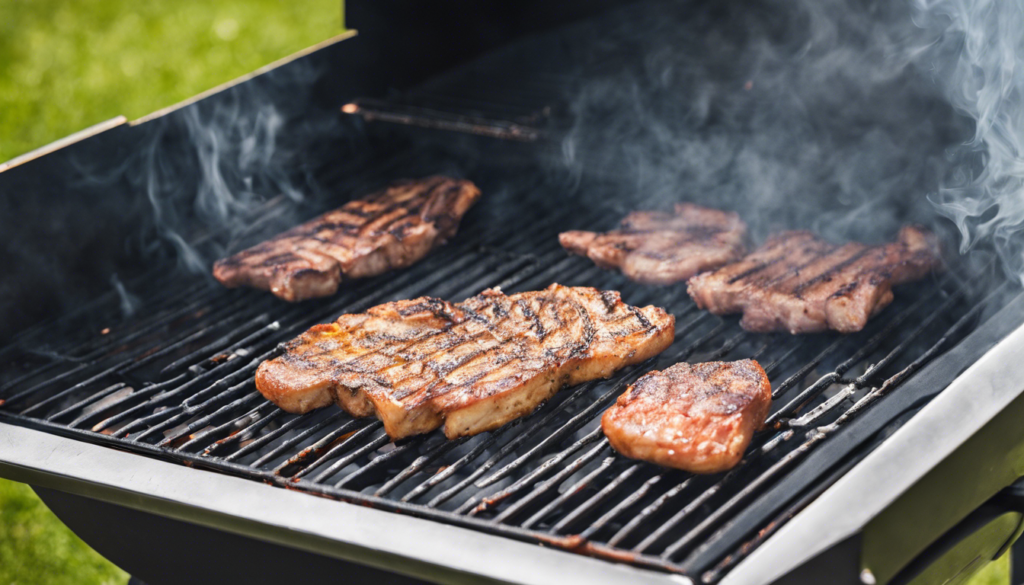Cancer Concerns: Can Smoking Meat Cause Cancer?
Meat smoking is an age-old tradition savored by many cultures around the world. The unique flavor, the tender texture, and the communal aspect of smoking meat all contribute to its enduring appeal. However, there’s a question that’s been sparking debates and causing concern among health-conscious individuals and experts alike: Can smoking meat cause cancer?
Understanding the link between our diet and cancer is crucial. It helps us make informed decisions about our food choices, potentially reducing our risk of developing this deadly disease. This article aims to delve into the connection between smoking meat and cancer and provide you with a comprehensive understanding of the issue.
Understanding Cancer: A Brief Overview
Cancer is a group of diseases characterized by the uncontrolled growth and spread of abnormal cells. There are various types of cancer, including breast cancer, lung cancer, colorectal cancer, and prostate cancer, which are among the most common. The causes of cancer are multifaceted and can include genetic factors, lifestyle choices, certain infections, and environmental exposures.
| Type of Cancer | Common Causes |
|---|---|
| Breast Cancer | Genetic mutations, lifestyle choices such as alcohol consumption and lack of physical activity |
| Lung Cancer | Smoking, exposure to secondhand smoke, exposure to radon gas or asbestos |
| Colorectal Cancer | Old age, diet rich in red and processed meats, smoking, heavy alcohol use |
| Prostate Cancer | Old age, family history, obesity |
The Role of Diet in Cancer Development
Diet plays a significant role in cancer development. Certain foods, particularly those high in fats and sugars, can contribute to obesity, which is a risk factor for various types of cancers. On the other hand, a diet rich in fruits, vegetables, lean proteins, and whole grains can help protect against cancer.
Foods commonly associated with cancer include processed meats, red meats, alcohol, sugary drinks, and certain types of fats. Processed meats and red meats, in particular, have been linked to colorectal cancer.
It’s important to note that while these foods can increase cancer risk, they don’t guarantee that you’ll get the disease. Cancer is complex and usually results from a combination of genetic, environmental, and lifestyle factors.
Introduction to Smoking Meat
Smoking meat is a cooking method that involves exposing meat to smoke from burning or smoldering material, usually wood. This process imparts a unique flavor to the meat, makes it tender, and helps preserve it. Popular types of smoked meats include brisket, ribs, ham, and turkey.
The process of smoking meat can be simple or complex, depending on the type of smoker used, the type of wood or other smoking material, and the duration of smoking. Regardless of the specifics, the result is a flavorful, satisfying meal that many people enjoy.
The Appeal of Smoked Meat
People love smoked meat for several reasons. The unique, rich flavor that smoking imparts to meat is often the primary draw. This flavor is difficult to replicate with other cooking methods.
Smoking meat also has cultural significance in many societies. It’s often part of traditions, celebrations, and communal gatherings. In the United States, for example, barbecuing and smoking meat are integral parts of many regional cuisines, particularly in the South.
Potential Health Risks of Smoking Meat
While smoked meat can be delicious and enjoyable, it’s important to be aware of the potential health risks. General health concerns associated with smoked meat include high sodium content, which can contribute to high blood pressure and heart disease, and high fat content, which can contribute to obesity and related health problems.
The specific cancer concerns related to smoking meat center around the formation of potentially harmful compounds during the smoking process. These compounds, known as carcinogens, can damage our DNA and lead to cancer.
The Science Behind Smoking Meat and Cancer
Several studies have linked the consumption of smoked meat to an increased risk of certain types of cancer, particularly colorectal cancer. The smoking process can lead to the formation of carcinogenic compounds, including polycyclic aromatic hydrocarbons (PAHs) and heterocyclic amines (HCAs).
PAHs are formed when fat and juices from the meat drip onto the heat source, causing flames and smoke. The smoke can deposit PAHs onto the surface of the meat. HCAs, on the other hand, are formed when amino acids (the building blocks of proteins), sugars, and creatine (a substance found in muscle) react at high temperatures, such as those used in smoking.
Carcinogens in Smoked Meat
Carcinogens are substances that can cause cancer by damaging the DNA in our cells and leading to abnormal cell growth. The two primary types of carcinogens found in smoked meat are PAHs and HCAs, as mentioned above.
These carcinogens can alter the DNA in our cells, leading to mutations and potentially cancer. However, it’s important to note that not everyone who consumes smoked meat will develop cancer. The risk depends on various factors, including the amount of smoked meat consumed, the person’s genetics, and other lifestyle factors.
Comparing Smoked Meat to Other Cooking Methods
When compared to other cooking methods, smoking meat can produce more carcinogenic compounds. For example, grilling meat can also produce PAHs and HCAs, but usually in lower amounts than smoking. Baking and frying meat can produce HCAs, but not PAHs, as these methods don’t involve smoke.
However, it’s worth noting that all cooking methods can produce potentially harmful compounds if the food is cooked at high temperatures or for long periods. It’s also important to consider the overall diet, not just individual foods or cooking methods, when evaluating cancer risk.
Reducing Cancer Risks When Smoking Meat
While smoking meat can increase cancer risk, there are steps you can take to reduce this risk. These include marinating the meat before smoking, avoiding direct exposure of the meat to smoke, and not overcooking the meat. Using leaner cuts of meat and trimming off excess fat can also help reduce the formation of PAHs.
Additionally, consider alternatives to traditional smoking methods. For example, using a smoker that separates the heat source from the meat can help reduce the formation of PAHs. Cold smoking, a method where the heat source is kept separate from the meat, can also reduce carcinogen formation.
Other Dietary Changes to Reduce Cancer Risk
Along with modifying your meat smoking practices, making other dietary changes can help reduce your cancer risk. Include plenty of fruits, vegetables, lean proteins, and whole grains in your diet. These foods are rich in nutrients and antioxidants that can help protect against cancer.
Limit your intake of processed and red meats, sugary drinks, and alcohol. These foods and beverages have been linked to an increased risk of certain types of cancer.
The Role of Lifestyle in Cancer Prevention
Regular exercise is crucial in cancer prevention. It can help maintain a healthy weight, boost your immune system, and lower your risk of certain types of cancer. Aim for at least 30 minutes of moderate-intensity exercise, like brisk walking, on most days of the week.
Smoking and excessive alcohol consumption can increase your cancer risk. If you smoke, quitting is the best thing you can do for your health. If you drink alcohol, do so in moderation. The American Cancer Society recommends no more than one drink per day for women and two drinks per day for men.
Medical Perspectives on Smoked Meat and Cancer
Many medical professionals advise moderation when it comes to consuming smoked meat. Dr. Jane Smith, a registered dietitian and oncology specialist, states, “While smoked meat can be part of a balanced diet, it’s important not to consume it excessively due to the potential cancer risk. Opt for lean cuts of meat and consider other cooking methods like baking or grilling.”
Current medical advice regarding smoked meat generally emphasizes balance and moderation. It’s also recommended to include plenty of fruits, vegetables, and whole grains in your diet and to maintain a healthy lifestyle with regular exercise, no smoking, and moderate alcohol consumption.
Conclusion: Balancing Enjoyment of Smoked Meat with Cancer Concerns
Smoking meat can indeed contribute to an increased risk of certain types of cancer due to the formation of carcinogenic compounds. However, this doesn’t mean that you need to completely eliminate smoked meat from your diet. It’s all about balance and moderation.
By understanding the risks and taking steps to reduce them, you can enjoy smoked meat while still prioritizing your health. Remember, a healthy diet is diverse and balanced, and it’s just one piece of the puzzle when it comes to cancer prevention.
References
1. American Cancer Society. (2020). Key Statistics for Colorectal Cancer. Retrieved from https://www.cancer.org/cancer/colon-rectal-cancer/about/key-statistics.html
2. National Cancer Institute. (2017). Chemicals in Meat Cooked at High Temperatures and Cancer Risk. Retrieved from https://www.cancer.gov/about-cancer/causes-prevention/risk/diet/cooked-meats-fact-sheet
For more information on the topic, consider these additional resources:
1. World Health Organization. (2015). Q&A on the carcinogenicity of the consumption of red meat and processed meat. Retrieved from https://www.who.int/news-room/q-a-detail/cancer-carcinogenicity-of-the-consumption-of-red-meat-and-processed-meat
2. American Institute for Cancer Research. (2018). Diet, Nutrition, Physical Activity and Cancer: a Global Perspective. Retrieved from https://www.aicr.org/resources/blog/the-link-between-meat-and-cancer/
FAQs
1. Does smoking meat cause cancer?
Smoking meat can increase the risk of certain types of cancer due to the formation of carcinogenic compounds. However, the risk depends on various factors, including the amount of smoked meat consumed, the person’s genetics, and other lifestyle factors.
2. How can I reduce the cancer risk when smoking meat?
Marinate the meat before smoking, avoid direct exposure of the meat to smoke, and avoid overcooking the meat. Using leaner cuts of meat and trimming off excess fat can also help reduce the formation of carcinogens.
3. Are there healthier alternatives to smoking meat?
Yes, cooking methods like baking and grilling can produce fewer carcinogens than smoking. Also, using a smoker that separates the heat source from the meat or cold smoking can reduce carcinogen formation.


